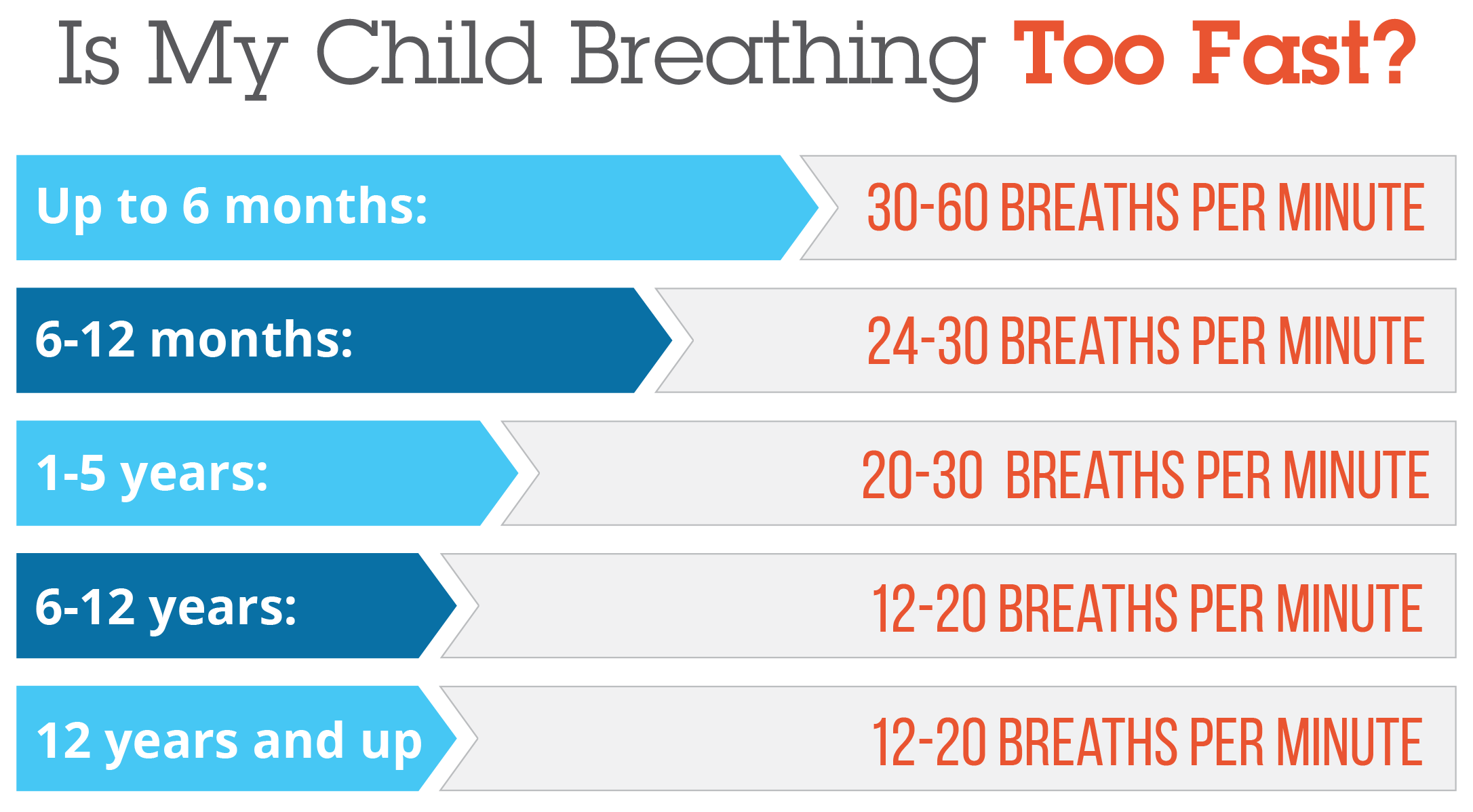Dont be at all surprised if your child seems to be a noisy breather. Sleeping babies tend to breathe more slowly at a rate closer to 30 breaths per minute.
 Normal And Abnormal Baby Breathing Patterns
Normal And Abnormal Baby Breathing Patterns
Your babys skin turns very pale or blue or the skin inside your babys lips or under their tongue is turning blue cyanosis.

Irregular breathing in infants. They breathe progressively more quickly and deeply then more slowly and shallowly then pause for up to 15 seconds. If your infant displays any of the symptoms listed below immediately seek emergency care. Its normal for newborns to have periodic breathing This is when an infant breathes slowly for a time then breathes more quickly then slows down and so on.
Lambs and infants had short periods of very rapid breathing followed by short apnoeas. A baby who is overheated or upset and crying may breathe rapidly but the rate should slow when the baby is no longer too hot or crying. If your baby makes noises when breathing.
A typical newborn can breathe fast several times and then stop breathing for less than 10 seconds before taking a breathe again. Signs of Breathing Problems. Noisy breathing is typically caused by a partial blockage or narrowing at some point in the airways respiratory tract.
They may wheeze when breathing out. Your childs nostrils may flare get wider when they breathe. In periodic breathing a newborns breathing may stop for 5 to 10 seconds and then begin again more rapidly around 50 to 60.
Your babys breathing stops for more than 10 seconds NICE 2015. While sleeping newborns may do whats called periodic breathing. Irregular breathing can be a byproduct of snoring according to Parenting Science.
If Your Child Stops Breathing. In most cases babies irregular breathing habits are nothing to worry about. This irregular breathing pattern is common in premature babies in the first few weeks of life.
Breathing may be faster than usual or irregular. Approximately 15 to 25 percent of infants snore. During sleep a baby may also breathe at an irregular rate or stop breathing for a few seconds.
They can breathe fast take long pauses between breaths and make unusual noises. Rapid breathing is more than 60 breaths per minute. Periodic breathing may also include short spells of breathing so shallow you may not be able to detect breathing at all.
These episodes often happen when the infant is sleeping deeply. There are some signs to watch and listen for though that may indicate breathing problems in infants. All babies make odd noises while breathingsnuffles and whistles and what sounds like irregular intake of breathbut usually these noises dont indicate anything abnormal.
This type of irregular breathing is normal and does not require treatment. If irregular breathing persists past the age of 6 months call your pediatrician to ensure your childs breathing is healthy. Newborns often have irregular breathing patterns that concern new parents.
Noisy breathing is common especially in children and can be a sign of many different conditions some of which are very benign and some of which require urgent treatment. Breathing may slow down to 20 breaths per minute while newborns sleep. Continuously rapid breathing is a sign of a problem.
This noisy breathing shouldnt necessarily cause concern. The concentrations of carbon dioxide and water in a flow-through system collecting expired air increased during the short periods of rapid breathing and then decreased again during the subsequent short apnoeic period. Infants can only breathe through their noses in the first couple of months of life which can cause them to make all sorts of soundsfrom snorts and grunts to gurgles and whistlesas they inhale and exhale.
They may make a high-pitched sound when breathing in stridor They may make a grunting sound when breathing out. Irregular breathing is a symptom of the chronic hyperventilation syndrome which is typical for most ordinary people and people with chronic diseases see the Homepage for clinical studies. Even healthy full-term babies sometimes have stretches of periodic breathing.
This is called periodic breathing and its pretty standard in healthy babies. Call 999 if this happens. The muscles under their ribs may suck in with each breath.
When to Worry About Babys Breathing Newborns tend to have an irregular breathing pattern that alternates between fast and slow with occasional pauses. Chronic hyperventilation cannot increase normal oxygenation of the arterial blood 98 but does cause hypocapnia causing reduced O2 delivery to body cells. Your baby WILL grow out of it.
But they may also happen with light sleep or even when the baby is awake. While snoring can be a symptom of infant sleep apnea even with no sleep apnea involved breathing irregularities caused by snoring can cause physical problems for the baby. There are regular shorter pauses in your babys breathing while they are awake BLF 2019.
Signs of potentially worrisome breathing problems in your baby include a persistently increased rate of breathing greater than 60 breaths per minute or so and increased work to breathe. The pattern of breathing in your baby can be pretty irregular but thats usually okay. They start up again with progressively deeper breaths.
Rapid or irregular breathing. Newborns breathing looks and sounds.